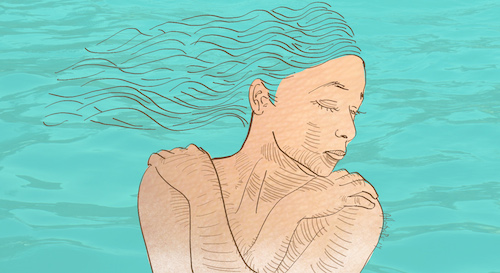Expectation of Beauty, Not Vanity, is What’s Toxic

I like skincare. Correction: I’m a neck-deep skincare hobbyist. Having had terrible acne and having gotten rid of it with my own skincare adventures, skincare is now more than just an indulgence for me. Wearing my daily sunscreen is now as automatic as brushing my teeth. I’m proud of my skin and how healthy it is now compared to three years ago. I’m excited to see my preventative efforts pay off in the future.
So far, do I sound stupid?
Shallow?
Vain?
With this love for skincare and a background as a medical doctor, it only makes sense that I aimed to become a dermatologist. I myself felt how one’s skin could drastically change one’s quality of life; acne is distressing, and if I can help hundreds of others be happy and comfortable in their clear skins like how I felt when I managed to clear my own skin- that seemed like decent enough a raison d’etre for me.
And, I love the science. My idea of relaxing is nodding off to journal reports on dermatological sciences, pondering over UV filters, red light therapy, poring over ingredients lists of over the counter products. My love language is giving accidental treatises of skincare recommendations and advice to my unfortunate friends, who might have eventually regretted asking advice from me, having never foreseen just how much of a skincare nerd I am.
But, inevitably, all through my years of rotating in hospitals, every time I mentioned that I wanted to be a dermatologist, I always get comments like
“Oh, well, makes sense,” sizing me up from head to toe. “You do look like the fashionista type.”
A resident said, “Well, when I was a GP I purposefully sought difficult experiences in remote areas. Well, why be a doctor if all you do is cure acne?”
Or how the other party would judge my makeup and my dress and immediately comment, “So, which specialty would you want to get into? Dermatology?”
So what if it’s dermatology?
Also read: Do Beauty Products Really Empower Us?
Why the derisive tones and all the judgment on my hair, appearance, manner of fashion?
Or the memes of how boys lust over girls who doesn’t need skincare, doesn’t like skincare – girls who are “natural”?
I’ll just say it: I am vain, and I’m proud of it. I care about personal appearance and it actually forms a big part of my identity. And I don’t think that’s any more stupid, shallow, or wrong.
Even while caring for my hair or applying my twice daily skincare, which doesn’t even take more than ten minutes, I am still a wholesome human in many different ways, with many different hobbies and different accomplishments that is in no way related to how I look or how I dress. Last time I checked, wearing jewellery or red lipstick does not lower one’s IQ, although it does seem to lower other’s perception of it.
Vanity is human. For as long as humans have existed, we have cared about beauty. Beauty itself is an abstract idea with no clear formula on its origins and existence, so it may be tempting to think that we could entirely disregard it. But from where I stand, appreciating beauty is what it means to be human. Wanting to present oneself looking the best version one can be is an entirely human and normal impulse.
I think there’s a line that needs to be drawn between society’s (toxic) expectation of beauty, and expressing one’s own beauty. To be fair, the line is very thin, and these two things are tightly intertwined with one another, even in the most eclectic aesthete, personal expression of beauty is invariably influenced by societal expectations that bombards us since childhood in every waking moment. It’s also easier to be comfortable with one’s own skin and completely embrace and express one’s beauty if it fits the mainstream idea of what beauty looks like. But people need to understand that vanity in itself is human. Appreciating aesthetics is human.
Also read: How I Stopped Using Skincare as a Coping Mechanism
We do need to get rid of many “toxic” ideas about beauty in society: flat stomachs, long straight dark hair, porcelain white skin. But the key point is: it’s not that flat stomachs, long dark hair or white skin is inherently toxic, in any way.
What’s toxic is society’s expectations that beautiful women should all have those same qualities. The expectation of total conformation, and the effort it forces on some of us – most of us – to follow suit, and inevitably fall short; our self-identity and self-confidence forever affected and bruised. That’s what’s toxic.
What’s toxic is society’s expectations that women who want to look good and appreciate beauty – especially traditional ideas of beauty – are automatically shallow and vain at best, or dangerous jezebels at worst. That’s what toxic.
We women are born with different body types, skin color, hair type and color. Some of us have terrible acne. Some of us never had acne in our lives. Some of us have straight black hair, others have curly hair. We all live, grow up, flourish as females, in all our different fields – some of us prioritizing comfort, some of us collecting high heels, some of us can’t be bothered with the double cleansing thingy, some of us can’t live without K-beauty and red lipstick.
I think what true feminism entails is not to get rid of “feminine” values, aesthetics or appearances. It’s to support that each female has the freedom to embrace, appreciate, and express themselves and their personal aesthetics, without any judgment.
What matters isn’t how wrong it is for wanting to look good. What matters is shifting the reason for it from conforming to societal standards, into embracing and highlighting one’s natural beauty. Taking care of one’s skin, body or hair isn’t a sin. And as for fashion: fashion is wearable music.
I solemnly swear that I will no longer feel shame for wanting to look good.






















